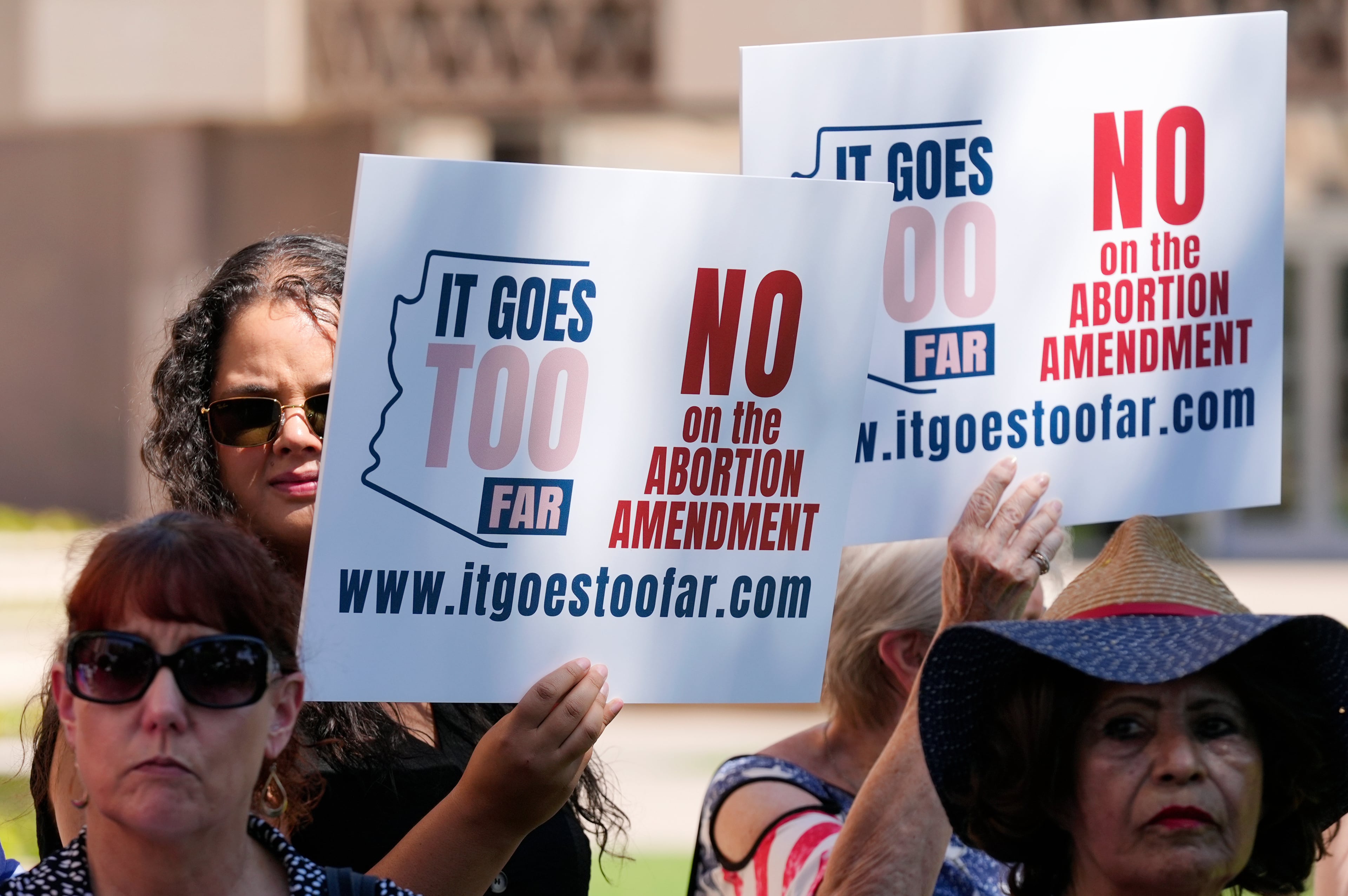Three years after Roe v. Wade was overturned, U.S. faces costly consequences

Parents aren’t supposed to bury their children. Children shouldn’t have to grow up without their parents. And women — regardless of ZIP code, circumstance or faith — should have the full right to make decisions about their own health care.
Yet here we are.
Three years ago this summer, the U.S. Supreme Court decided to overturn Roe v. Wade, and women throughout the country are reminded of the horrendous and unjust reality we live in today.
A reality that in 2025, women have fewer rights than our mothers and grandmothers. This rollback of rights isn’t theoretical. It’s deeply personal.
It’s deadly.
The recent story of Adriana Smith is a tragedy that sadly surprises no one. A 31-year-old mother from Georgia who, earlier this year, was declared brain-dead. But because she was nine weeks pregnant, doctors — bound by the restrictions of Georgia’s abortion ban — felt compelled to keep her on life support, without her consent or that of her family, to deliver her fetus via Cesarean section.
This was not the story of a hopeful birth, but of a forced extraction from a woman who could no longer speak for herself.
Smith never got the dignity of a peaceful death. Her son, Chance, was born weighing just under 2 pounds. He is now fighting for his life.
Smith’s story is just one of the many that have occurred since the 2022 ruling.
Changes in law have led to trauma, not compassion
Mini Timmaraju, of Reproductive Freedom for All, said, “Because of Georgia’s cruel abortion ban … prolonging their suffering isn’t just horrible policy; it’s inhumane.”

Smith’s mother, April Newkirk, described watching her daughter on a ventilator as “torture … We didn’t have a choice or a say about it. … The decision should have been left to us, not the state.”
The law at the center of Smith’s story is Georgia’s Living Infants Fairness and Equality Act.
Its name suggests compassion. But its consequences tell a different story: one of trauma, loss and a dangerous chilling effect on health care providers who now fear legal repercussions for simply doing their jobs.
As a Latina who had the honor of working with former Vice President Kamala Harris, I remember vividly the moment the decision came down.
We had just landed in Plainfield, Illinois. I will never forget Vice President Harris’ words that day: “The court’s action has meant already that many dedicated doctors and nurses now lose their ability to care for their patients, that providers risk going to jail just for doing their job and that patients are denied critical care and even fear that they will be punished simply for seeking care.”
Physicians must make decisions based on politics, not science
The providers who treated Smith faced an impossible decision: Risk prosecution or go against their medical and moral judgment.
In a just world, medicine would be guided by compassion, best practices and patient autonomy, not by fear of legal retribution. But in post-Roe America, doctors are being forced to practice defensive medicine, second-guessing their decisions not based on science, but on state statutes and political agendas.
The weight of that fear — and its ripple effects — is being felt in exam rooms and emergency rooms across America.
Today, we reflect on the lives lost, the dignity denied and the growing disrespect for women who are simply asking for the right to make decisions about their own bodies.
For every Smith. For every doctor stifled by fear. For every child who will grow up asking why their mother had to die.
We must demand better.
Crystal Saavedra is the executive director of In Her Element Foundation, a nonprofit empowering women around El Paso, Texas, Las Cruces, New Mexico, and Juárez, Mexico. She previously served in key advance roles at the U.S. Environmental Protection Agency and the White House under Vice President Kamala Harris. A Public Voices Fellow on Reproductive Justice, Saavedra is committed to mentorship, equity and uplifting leaders who are people of color.


